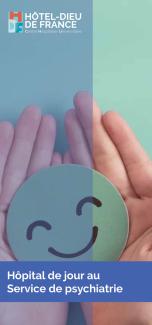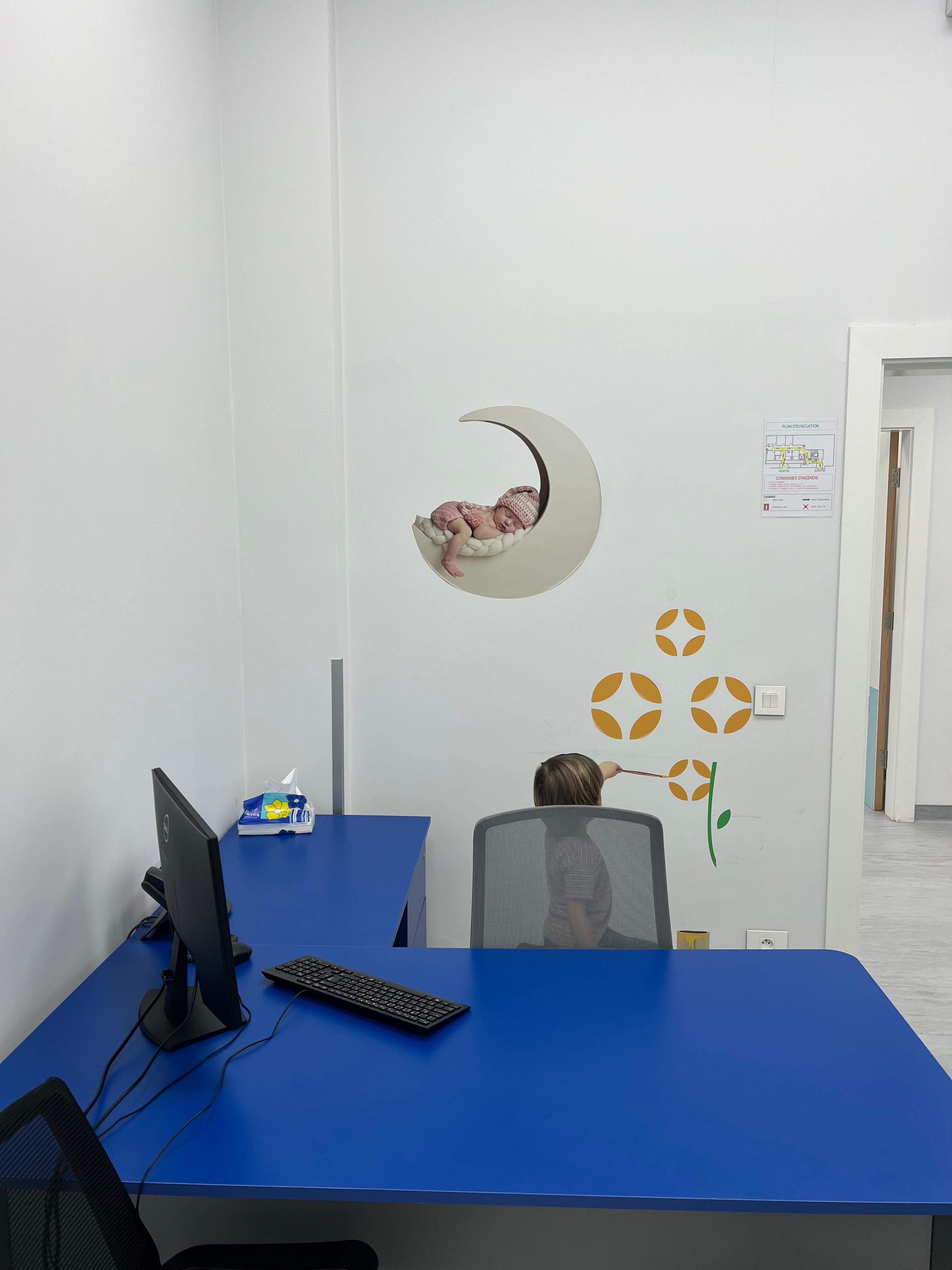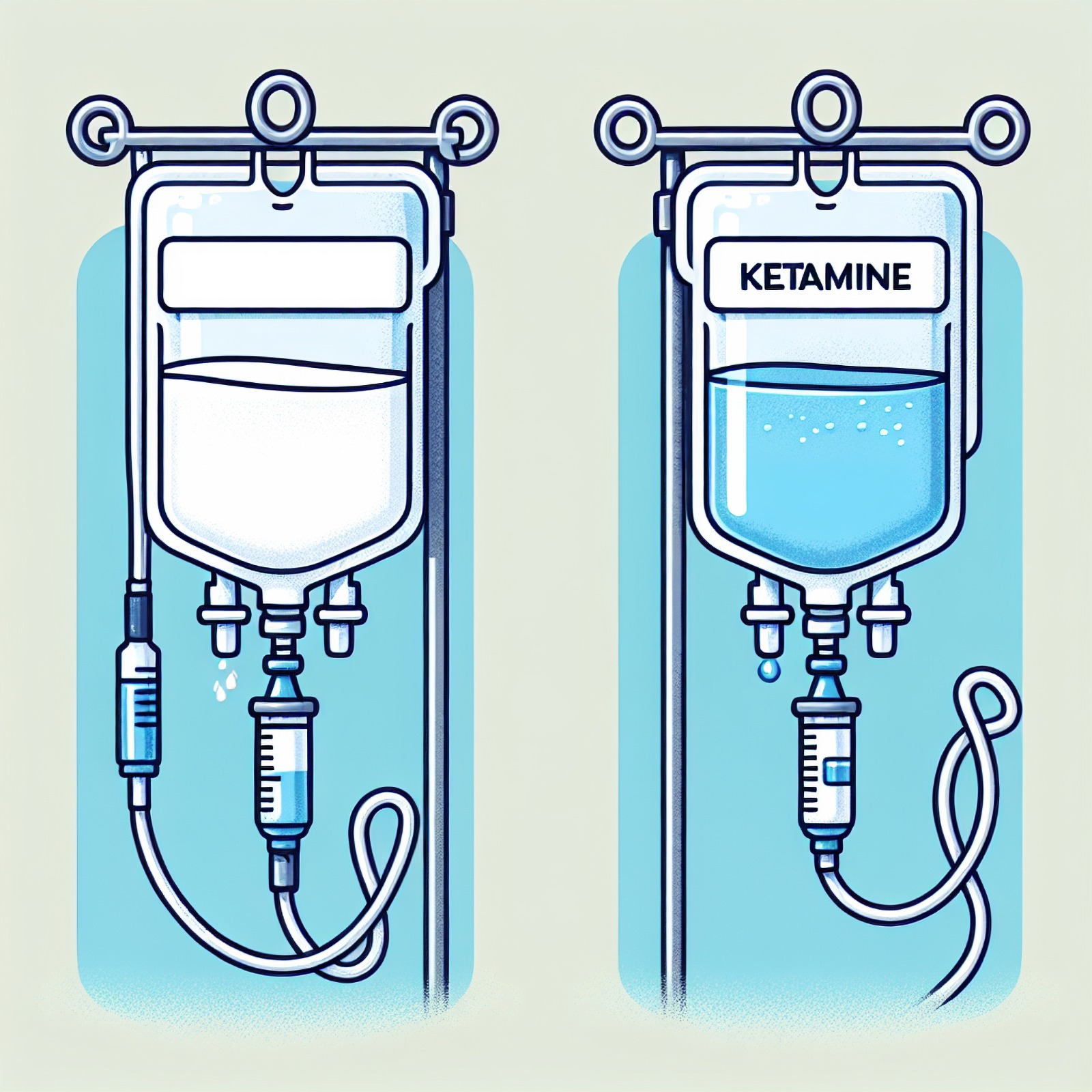During a patient's hospitalization, occupational therapy plays an essential role in their therapeutic regimen, particularly in the context of psychiatric care. The scientific foundations of occupational therapy highlight its multifaceted benefits, significantly contributing to individuals' mental health and overall well-being.
- Cognitive Remediation: Occupational therapy interventions are designed to enhance cognitive functions such as memory, attention, and problem-solving skills. Through various exercises and cognitive activities, patients engage in purposeful tasks aimed at improving mental sharpness and cognitive abilities.
- Functional Independence: Occupational therapy focuses on developing daily living skills, promoting independence and autonomy. Patients learn and practice tasks related to self-care, productivity, and leisure, facilitating their successful reintegration into daily life after hospitalization.
- Social Reintegration: Group occupational therapy sessions provide a supportive environment for social interactions and skill development. Patients develop and refine their interpersonal skills, helping to alleviate social anxiety and fostering a sense of community within the treatment framework.
- Occupational Balance: By engaging in meaningful and useful activities, patients find balance in their daily routines. Occupational therapists collaborate with individuals to identify personally significant goals and activities.
- Psychosocial Functioning: Occupational therapy addresses psychosocial factors, considering the interaction between mental health and daily activities. Therapeutic interventions aim to enhance self-esteem, personal effectiveness, and overall quality of life.
- Prevention of Occupational Deprivation: Occupational therapy recognizes the importance of meaningful engagement in daily activities. By preventing occupational deprivation—where individuals are unable to participate in essential activities for their well-being—patients are empowered to lead fulfilling lives.
- Transition Planning : Occupational therapists play a key role in preparing patients for the transition from hospitalization to community life. They assess individual capabilities and design interventions to facilitate a smooth reintegration into society, mitigating potential challenges.
The partnership between an experienced occupational therapist, trainees, and supervision by the psychiatrist ensures that the therapeutic program is tailored to the specific needs of each patient, in line with scientific evidence. This approach not only addresses immediate concerns but also equips individuals with the skills and strategies necessary to maintain sustainable mental health beyond the hospital setting.
For any further questions about the scientific foundations and applications of occupational therapy, please contact us at 01604557.

Psychomotor therapy is a therapeutic field aimed at rehabilitating altered motor and developmental functions (posture, balance, muscle tone, manual dexterity, coordination, praxis), cognitive functions (attention, executive functions, and memory), as well as relational and emotional aspects (integration of body schema and body image, non-verbal expression) in individuals with psychiatric disorders. Thus, it plays a crucial role in the treatment of hospitalized psychiatric patients, offering various benefits that significantly enhance overall mental health. It encompasses a wide range of goals aimed at improving several aspects of individual well-being.
Physical and Motor Rehabilitation: Psychomotor therapy aims to strengthen non-verbal communication skills, fostering deeper connections beyond verbal expression. It helps patients become aware of their physical state and promotes the development of a positive body image. Additionally, it focuses on improving motor skills, encompassing general coordination and manual dexterity.
Facilitating Creative Expression: Facilitating creative expression is another essential goal, providing patients with an opportunity to express themselves creatively and explore their emotions. At the same time, it addresses emotional well-being by actively reducing levels of anxiety and stress. By empowering individuals with coping mechanisms, the therapy involves teaching relaxation techniques, breathing exercises, and effective stress management strategies.
Cognitive Rehabilitation: Cognitive rehabilitation within psychomotor therapy encompasses various objectives aimed at improving mental faculties. Primarily, the therapy seeks to enhance attention by refining the ability to focus on specific tasks while ignoring distractions and maintaining concentration. It also aims to improve memory and foster mental flexibility, encouraging adaptation to new situations, multiple perspectives, and varied understandings.
Psychomotor therapy dedicates efforts to strengthen problem-solving skills, guiding patients in developing logical and effective approaches to tackling challenges. Decision-making skills are also emphasized, helping individuals make informed choices and assess potential consequences. Spatial orientation is addressed to enrich understanding of space, directions, and spatial relationships. Furthermore, it stimulates analytical thinking to allow for the analysis of complex information, identification of patterns, and drawing of well-founded conclusions. The therapy expands its scope to enhance time management, assisting patients in effectively organizing their time and meeting deadlines.
In conclusion, the objectives defined in psychomotor therapy illustrate its holistic approach to individual well-being. By addressing both psychomotor and cognitive aspects, the therapy aims to empower individuals at different levels. For more information on the scientific foundations and applications of psychomotor therapy, please feel free to contact us at 01 604 000 ext: 5725.
Psychotherapy at the Psychiatry Service of Hôtel-Dieu de France
Psychotherapy plays a crucial role in the care of patients in a hospital setting. It aims to provide tailored therapeutic support, whether through supportive therapies or institutional therapies. Our service employs various strategies and techniques, including brief behavioral approaches, to meet the specific needs of patients. This care extends not only to patients hospitalized in our service but also to those for whom our team is consulted, as well as patients from the day hospital, the HDF network, the family medicine center, and the social clinic for children. For more information about this therapy, please feel free to contact us at 01604557.
Social Support Service at the Psychiatry Department of Hôtel-Dieu de France
The social worker in the department plays a crucial role in supporting patients. They assess patients' needs for financial assistance to cover hospitalization costs and help them manage psychosocial stress. Their intervention also extends to assisting patients with social and professional reintegration after discharge from the hospital. Additionally, the social worker coordinates patient stays with relevant institutions, ensuring a smooth transition between different services. They are committed to providing tailored support to hospitalized patients in our department, patients in day care, those for whom our team is consulted, and patients from the family medicine center and the social clinic for children. For more information about this mode of care, please contact us at 01 604 557.
The day hospital is affiliated with the psychiatry department of HDF, functioning both as a hospital program and an outpatient service. It offers psychotherapeutic, occupational, social, psychomotor, and dietary interventions, accompanied by meticulous medical and nursing follow-up.
Established in 2013, this facility is an innovative structure in Lebanon dedicated to the psychosocial rehabilitation of patients with mental disorders. Aware of the multidimensional impact of mental health issues on individuals, encompassing social, professional, and personal domains, the day hospital aims to address cognitive and functional decline associated with severe and chronic mental disorders, both as direct effects and consequential outcomes.
Alongside these objectives, the program adopts a scientific approach to address complex psychological difficulties related to mental disorders. Psychotherapeutic interventions and group therapy sessions are strategically employed to tackle and alleviate the psychological challenges faced by patients, thereby promoting their overall mental well-being.
Furthermore, the day hospital recognizes the high comorbidity of mental disorders with somatic conditions and obesity. In response, a medical and nutritional dimension is seamlessly integrated into the program. Collaborating with experienced health professionals and nutritionists, the facility ensures a comprehensive approach to address the physical health aspects of patients, acknowledging the interconnected nature of mental and somatic well-being. Simultaneously, the program places significant emphasis on vocational rehabilitation.
The program, which runs three days a week for three hours per session, includes workshops on cognitive remediation, reintegration, art therapy, nutrition, mindfulness, group psychotherapy, psychoeducation, psychomotricity, and occupational therapy. This carefully curated selection of interventions is orchestrated by professionals with over a decade of experience in the field, ensuring a multidisciplinary and evidence-based approach to the rehabilitation of psychiatric patients.
Feel free to contact us for more information about the program at 01 604 557
Cognitive Remediation
Cognitive remediation is a therapeutic approach aimed at reducing the impact of cognitive difficulties on a patient’s daily life and attempting to rebuild and stimulate recoverable cognitive functions. Several strategies are employed in cognitive remediation to achieve this goal, such as training the impaired function (e.g., learning new information for patients with memory issues) or attempting to bypass the difficulty by developing compensatory strategies based on the patient’s preserved abilities (e.g., taking notes on information to remember, using mnemonic aids, etc.).
Our cognitive remediation program is based on these various strategies and targets different aspects of cognitive functions, including attention, working memory, social cognition, and executive functions. The aim is to tailor interventions to address the specific cognitive challenges faced by the individual, thereby promoting improvement and adaptation in daily life.
For any further questions regarding the program, please feel free to contact us at 01 604 557.
- Psychoeducation Program for Families
Psychoeducation is a program that provides information, support, and practical tools to families, helping them understand, respond effectively, and adopt appropriate behaviors towards individuals with mental disorders.
These methods teach skills for managing communication, emotions, stress, and guilt, while also developing relational capabilities, considering the diverse needs of individuals with mental disorders.
Psychoeducation for families has proven to be particularly effective, demonstrating a high level of evidence regarding its positive impact on both family well-being and the progression of individuals with mental disorders.
The program is designed to equip families with the knowledge and skills necessary to face the challenges associated with mental disorders, fostering a supportive environment for all involved members.
-
- Electroconvulsive Therapy (ECT)

ECT has established itself as an essential treatment modality in contemporary psychiatry, gaining increased recognition for its efficacy, safety, and notable success in managing disorders resistant to other interventions. Commonly used in cases of treatment-resistant disorders, ECT has significantly evolved, moving away from historically erroneous conceptions. As a safe and well-tolerated technique, it is associated with a high response rate, making it an invaluable option in the mental health landscape.
1. Mechanism of Action: ECT involves the controlled administration of electrical currents to the brain, inducing a carefully monitored seizure. The precise neurobiological effects are not fully understood, but ECT is believed to influence neurotransmitter release and enhance neuronal connectivity, contributing to its therapeutic effects.
2. Indications: ECT is considered when other treatment modalities prove ineffective or are contraindicated. It is particularly beneficial in cases of severe depression, treatment-resistant mood or psychotic disorders, as well as in severe acute mood or psychotic states. Its rapid action makes it a valuable intervention in situations where a swift response is essential.
3. Counterindications: Although ECT is generally safe, certain medical conditions may contraindicate its use, including intracranial hypertension. A thorough medical assessment is essential to evaluate individual fitness for the procedure.
4. The Procedure: Performed in an outpatient or inpatient setting, each session requires the patient's consent. The team, composed of a psychiatrist, an anesthesiologist and nurses, administers an anesthetic and a muscle relaxant before delivering the electric current. The session lasts about 15 minutes, with a post-procedure monitoring of six hours.
5. Side Effects: Common side effects are usually mild and temporary. These may include headaches, muscle aches, and confusion immediately after the procedure. Memory-related side effects are also possible, with short-term memory loss being the most common. However, modern techniques aim to minimize cognitive side effects. It is important to note that serious complications are rare, occurring in less than 1% of cases.
6. Expected Outcomes: ECT has demonstrated remarkable efficacy, especially in cases of severe depression, providing rapid relief of symptoms when other treatments are insufficient. The response rate is high, with many patients experiencing significant improvement after a series of ECT sessions. Approximately 60% to 80% of treatment-resistant depressions can be effectively treated with ECT.
Our team at Hôtel Dieu de France has over a decade of experience in administering ECT. Committed to staying at the forefront of psychiatric care, we meticulously apply this treatment according to the latest recommendations and cutting-edge techniques. Our goal is to ensure not only optimal therapeutic response but also the highest level of tolerance for our patients.
For more information about the tDCS, do not hesitate to contact us on 01604557.
-
- Transcranial Direct Current Stimulation (tDCS) (tDCS)
Transcranial Direct Current Stimulation (tDCS) has emerged as a promising and non-invasive neuromodulation technique. Historically, its roots date back to the early 19th century, with renewed interest over the past few decades. The evolving landscape of neuromodulation opens new perspectives, positioning tDCS as an innovative tool in the search for improved treatments for mental health
1.Indications in Psychiatry: tDCS is used to explore its potential in the treatment of various psychiatric disorders, including depression, anxiety disorders, and neurocognitive disorders. Its emerging applications encompass cognitive stimulation, enhancement of executive functions, and mood modulation. Ongoing research continues to reveal new therapeutic possibilities, positioning tDCS as a versatile approach.
2. Counter-indications: tDCS is contraindicated in patients with implanted medical devices, such as pacemakers or cochlear implants, due to potential interference. Individuals with a history of epilepsy or skin lesions at the electrode placement site should also exercise caution. A thorough assessment of medical history is essential before initiating tDCS.
3. Procedure: tDCS can be administered in an outpatient setting, providing flexibility and comfort for patients. The treatment begins with a thorough assessment of the patient's specific needs and therapeutic goals. During the procedure, electrodes are placed on the scalp, and a low electrical current is applied for a defined duration, typically between 20 and 30 minutes per session. The patient may experience a slight tingling sensation, but the procedure is generally painless. The frequency and duration of sessions are tailored to individual needs and therapeutic goals.
4. Side Effects: tDCS is well-tolerated, with side effects generally being mild and transient. These may include slight skin irritation under the electrodes, headaches, or a tingling sensation. Adjustments in electrode placement and current intensity can minimize these effects. Serious complications are extremely rare.
5. Expected Outcomes: While research on tDCS is still ongoing, promising preliminary results have been reported in various psychiatric fields. Patients may experience improvements in mood and symptoms after a few sessions, although responses vary among individuals. The effect of tDCS on depression and other psychiatric disorders is encouraging, positioning this technique as a potentially beneficial option for patients.
For more information on the scientific foundations and applications of tDCS, please feel free to contact us at 01 604 557.
Management with Intravenous Ketamine or Intranasal Esketamine:
Introduction :
Ketamine is traditionally used as an anesthetic agent but also shows significant promise at low doses, as demonstrated in recent years for the treatment of treatment-resistant depression and suicidal crises.
Administration Modalities :
Ketamine is administered in two forms: intravenously or intranasally.
The patient will receive 2 sessions per week for 4 weeks, with the duration potentially extended based on the nature of the response. Afterward, the sessions will be gradually spaced out.
Patient Information: :
-
The patient and their relatives are informed by the prescribing physician about the nature of the protocol (indications, objectives, process, benefit-risk balance, risk management plan).
-
The patient (or their legal representative) signs a consent form before the first infusion.
-
Consent must be signed before each infusion, based on medical indication.
Preparation and Evaluation Before Treatment:
-
A psychiatric evaluation will be conducted by the referring psychiatrist.
-
Anesthesia consultation +/- other consultations if necessary (cardiology, pulmonology, neurology, etc.).
-
A baseline assessment will be prescribed before starting the sessions (blood tests, an electrocardiogram, and other examinations as needed).
Course of Treatment: :
- The patient will be hospitalized or in a day hospital in the psychiatry department.
- Medical and paramedical support is required (psychiatrist and anesthetist).
- Anesthetists and the pain management team (nurse, anesthesia resident) must be present during the first 3 sessions for better patient safety.
- Follow-up scales will be administered to the patient before and after each treatment session.
- The protocol will be conducted in the patient's room, with minimal exposure to auditory and visual stimuli.
- Close monitoring of the patient's condition and vital signs will be performed.
- The stay will last half a day.
Possible Adverse Effects :
Rare, predictable, but important to discuss.
- Dissociative state, especially during the emergence phase (depersonalization, derealization, pleasant or unpleasant dreams, hallucinations, delirium), as well as a state of temporal-spatial disorientation or excitation. This is significantly reduced by the absence of auditory, visual, and tactile stimulation.
- Hypertensive crisis (hence the importance of close monitoring).
Desired Outcomes:
This treatment aims for a rapid and effective improvement of symptoms of treatment-resistant depression, as well as quick relief and reduction of suicide risk during an acute crisis.
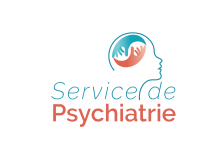
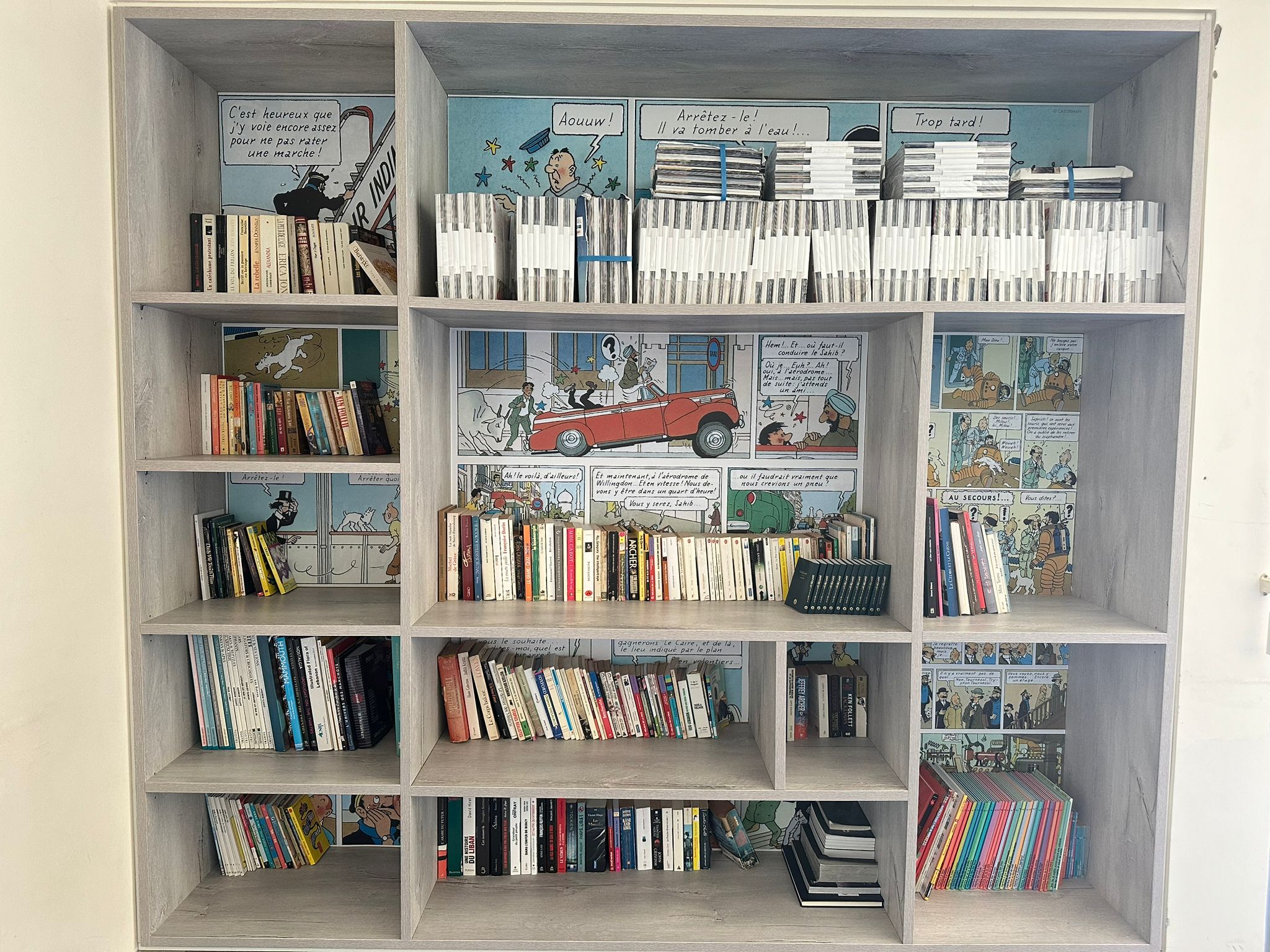




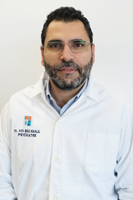
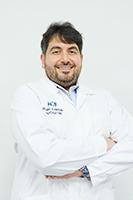



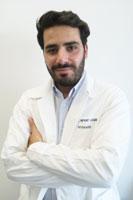

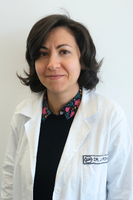

 Sandy Abdo
Sandy Abdo
 Nathalie Chemaly
Nathalie Chemaly
 Tonia El Dirani
Tonia El Dirani
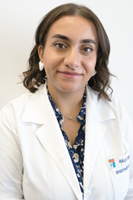 Hala Homsy
Hala Homsy
